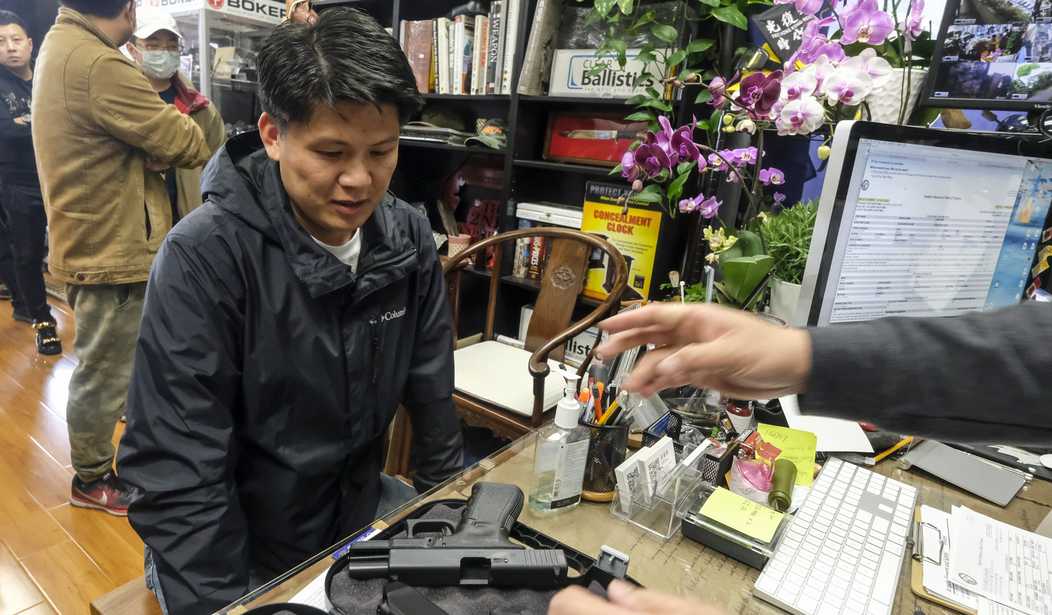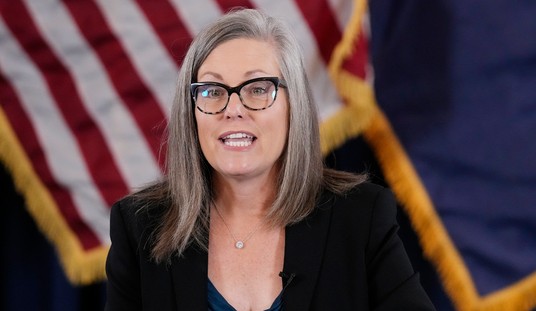We've long known how criminals get their guns. Most of them get firearms via some illicit means such as a black market gun sale, theft, or a straw purchase. A small percentage get them from retailers, and in almost all of those cases, there was nothing to prohibit the sale for whatever reason. I'm sure some used fake IDs while others just hadn't gotten caught doing anything, but we don't have firm numbers on that.
Yet despite the fact that gun stores aren't the source of illegally obtained guns, some people still see attacking them as somehow the key to preventing violent crime.
Or, perhaps more accurately, they're trying to sell the people on that being the key.
A prime example is an anti-gun group in Oregon.
The Alliance for a Safe Oregon wants the state to tighten control of firearms dealers.
The Nonprofit Wants State-Level Policies
The organization says Oregon should adopt state-level gun dealer licensing policies, a move adopted by other states.
The policies should include background checks of employees involved in gun sales, inspections, secure storage practices, and the use of security cameras at the point of sale to reduce violence, reduce gun trafficking, and deter theft.
According to a report by the Alliance of Oregon, guns were often recovered within 25 miles of where they were bought and, in Oregon, of the 26,046 firearms recovered in crimes between 2017 and 2021, 75% were bought in straw gun transactions or stolen from local dealers.
Straw gun purchases are when legal buyers purchase a firearm for someone legally prohibited from owning a gun.
The need for tighter gun control was underscored by statistics.
They argue that ATF inspections are "slack," taking place every 10 years, on average, and that a state licensing requirement would allow state inspectors to do it just that much faster.
However, let's look at their own numbers.
First, they note that 75 percent of guns recovered were either via straw purchase or theft from a local dealer. I find those numbers suspect myself, in part because theft from private gun owners is a much more common way for bad guys to get guns.
Yet let's say it's accurate. They note that three-quarters of all firearms recovered were illegally obtained. They don't break down what percentage were straw purchases and which were stolen, which I find interesting. After all, anti-gunners often make the argument that gun dealers are somehow at fault for straw buys, and that is occasionally the case but more often it's not. The fact that they don't put the lion's share on straw buys is probably because they can't.
We can't say for certain because absolutely no source is provided for us to evaluate.
Further, let's understand a few things about the firearm recovery claim.
First, 25 miles is a pretty broad range. My hometown of nearly 70,000 people is about 11 to 13 miles across, depending on which direction across town you take the measurement. From the center of town, 25 miles will get you into entirely different cities in different counties. Strangely, the distance across Albany, Georgia is about the same as Eugene, Oregon, which has about 110,000 more people.
Portland is bigger, of course, trying to measure via Google Maps across what looked like the longest angle got me a shade under 17 miles.
A 25-mile radius is a pretty big radius, all things considered. It means any gun bought anywhere in any town and then used on the completely opposite end of town falls into that category. It also means guns originally bought in rural communities that get used in a city like Portland may also fall into this radius.
Plus, they don't mention the "time to crime." In other words, were these freshly bought guns used for violent crime within the first year or so, or were they bought a decade earlier?
But that's if you accept the claims at face value. I'm skeptical that somehow, Oregon is different than just about everywhere else, where only a small fraction of the guns used in crime are stolen in the first place.
And this is important because this is key to the argument they're making here, that somehow gun dealers need tighter control because they're somehow responsible for Oregon's violent crime, and I'm just not buying any of it.
The question, though, is whether lawmakers will.








Join the conversation as a VIP Member